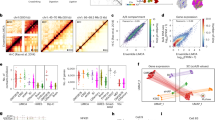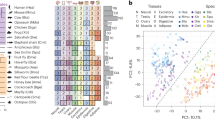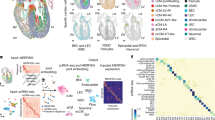Abstract
The embryonic lifespan of the chick is 22 days. Development in the first day takes place in the oviduct, and in the remaining 21 days in the shelled egg. There have been few attempts to culture oviductal embryos1–3, though methods covering the first few days of development in ovo are well established4 and a method for the final 18 days of development through hatching has recently been devised5.1 have now succeeded in culturing the fertilized ovum of the chick (Gallus domesticus) for the total embryonic period by growing it in a series of separate culture systems. This is the first report of a complete in vitro method for a homoiothermic animal. The technique opens the way to the investigation of developmental events in birds that require access to the embyro at the single-cell stage, and in particular to the genetic manipulation of the fertilized ovum.
This is a preview of subscription content, access via your institution
Access options
Subscribe to this journal
Receive 51 print issues and online access
$199.00 per year
only $3.90 per issue
Buy this article
- Purchase on Springer Link
- Instant access to full article PDF
Prices may be subject to local taxes which are calculated during checkout
Similar content being viewed by others
References
Howarth, B. Biol. Reprod. 3, 338–341 (1971).
Kochav, S. & Eyal-Giladi, H. Science 171, 1027–1029 (1971).
Olzanska, B., Szolajska, E. & Lassota, Z. Wilhelm Roux Arch. dev. Biol. 193, 108–110 (1984).
New, D. A. T. The Culture of Vertebrate Embryos (Academic, London, 1966).
Rowlett, K. & Simkiss, K. Br. Poult. Sci. 28, 91–101 (1987).
Kochav, S., Oinsburg, M. & Eyal-Giladi, H. Devl Biol. 79, 296–308 (1980).
Hamburger, V. & Hamilton, H. L. J. Morph. 88, 49–67 (1951).
Callebaut, M. Poult. Sci. 62, 1657–1659 (1983).
Dunn, B. E., Fitzharris, T. P. & Barnett, B. D. Anal. Rec. 199, 33–43 (1981).
Sauveur, B. & Mongin, P. Ann. Biol. anim. Biochem. Biophys. 11, 213–224 (1971).
Dawes, C. M. Biol. Rev. 50, 351–371 (1975).
Beadle, B. W., Conrad, R. M. & Scott, H. M. Poult. Sci. 17, 498–504 (1938).
Leonard, E. M. thesis, Univ. Edinburgh (1968).
Davidson, M. F. & Draper, M. H. J. Physiol., Lond. 202, 119–120P (1969).
Romanoff, A. L. Anat. Rec. 87, 365–369 (1943).
New, D. A. T. J. Embryol. exp. Morph. 4, 221–227 (1956).
Ono, T. & Wakasugi, N. Poult. Sci. 63, 159–166 (1984).
Paganelli, C. V. & Rahn, H. in Respiration and Metabolism of Embryonic Vertebrates (ed. Seymour, R. S.) 193–204. (Junk, Dordrecht, 1984).
Perry, M. M. J. Anat. 150, 99–109 (1987).
Author information
Authors and Affiliations
Rights and permissions
About this article
Cite this article
Perry, M. A complete culture system for the chick embryo. Nature 331, 70–72 (1988). https://doi.org/10.1038/331070a0
Received:
Accepted:
Issue Date:
DOI: https://doi.org/10.1038/331070a0
This article is cited by
-
Cultivation and characterization of primordial germ cells from blue layer hybrids (Araucana crossbreeds) and generation of germline chimeric chickens
Scientific Reports (2021)
-
An improved protocol for stable and efficient culturing of chicken primordial germ cells using small-molecule inhibitors
Cytotechnology (2020)
-
Male fertility restored by transplanting primordial germ cells into testes: a new way towards efficient transgenesis in chicken
Scientific Reports (2017)
-
Gene editing in birds takes flight
Mammalian Genome (2017)
-
Lysophosphatidic Acid Produced by Hen Egg White Lysophospholipase D Induces Vascular Development on Extraembryonic Membranes
Lipids (2013)
Comments
By submitting a comment you agree to abide by our Terms and Community Guidelines. If you find something abusive or that does not comply with our terms or guidelines please flag it as inappropriate.



